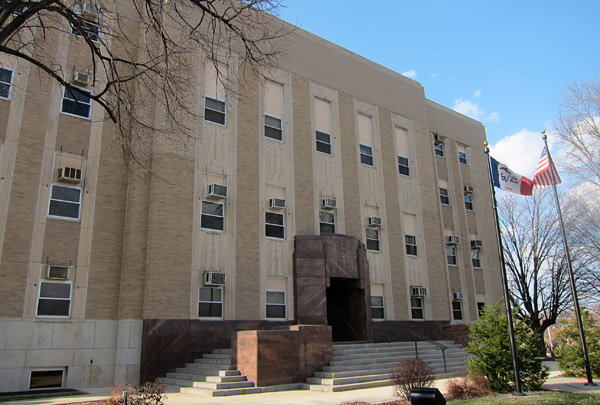DES MOINES — A consortium of counties in northeast and north-central Iowa are already well down the road to meeting the needs of residents with mental disabilities, as the rest of the state begins to consolidate services into a regional delivery system.
“I think it puts us in a very good position,” said Bob Lincoln, a Floyd County official who has been involved with a multicounty approach to mental-health service delivery.
In Floyd County’s case, the effort started with five counties and could grow to as many as 18 as local jurisdictions comply with a new law that reshapes Iowa’s county-based mental-health system into one statewide system administered regionally and delivered locally.
Lincoln, administrator for county social services in Floyd County, said the changes that are beginning to take place in the new fiscal year that begins Sunday help “validate” the consortium’s direction and accelerate the effort that began in 2009 to pool resources under a unified regional management plan.
“It allows us to move forward in a more deliberate fashion,” he said. “We’re encouraged by the legislation.”
Under Senate File 2315, most counties are expected to merge their mental health and developmental disabilities (MHDD) programs into new regional authorities by July 1, 2014. The goal is to assure that core services are delivered uniformally to rural and urban areas.
Counties are commencing partnership discussions aimed at establishing a regional structure no later than Jan. 1, 2014, with the refined network to be operational six months later, said Charles Palmer, director of the state Department of Human Services, which is overseeing the process.
The initial vestiges of the new system begin this week when architects hope to start “disentangling” Medicaid and non-Medicaid funded services by having the state take responsibility for providing the matching funds for programs covered under the federal Medicaid system and making counties financially responsible for non-Medicaid services.
The switch to a regional approach also will require counties to establish more uniform eligibility standards to efficiently deliver mental health and disability services in their areas.
Palmer concedes that’s a task easier said than done.
Many current programs are financed by crossover sources. That means the transition, in the short term, could require some counties to establish waiting lists for services or consider cuts to address potential shortfalls until the Legislature returns in January,
Lawmakers at that time will revisit funding needs and allocate up to $20 million to bridge the transition period, Palmer said. Lawmakers already have earmarked an additional $40 million in fiscal 2012-13 to cover the extra cost the state will incur.
But Bill Peterson, executive director of the Iowa State Association of Counties, is skeptical.
He said his organization believes the state has underfunded mental health costs annually by up to $40 million since commitments were cut a decade ago.
“Throughout this whole redesign process, the issue of funding has just not been adequately addressed,” Peterson said. “The Legislature said ‘trust us, if you need more, we’ll give you the money.’ At this point, I would say baloney. We’ve been saying we needed that amount of money for six to eight years and so far they’ve never ponied it up.”
Counties are concerned that the Legislature has created an expectation among clients that service will be improved and delivered uniformly, Peterson said, which is the long-term goal of redesign but not something that will be accomplished overnight.
“We just don’t think there’s enough money to provide the services that people are going to expect us to provide,” he said. “We just don’t think they’ve given us the resources to do the job that they want us to do.”
Palmer said officials in his agency will spend the coming months writing rules that will be important for the counties to standardize operations and forge 28-E intergovernmental agreements to operate in between 10 and 15 regions.
DHS officials have the authority to allow a large county to operate as a stand-alone region if need be, and they also can mediate situations involving “orphan” counties that are unable to partner with other contiguous counties in a regional partnership.
“One of our department’s services is adoption, so maybe we can use some of our skills that we have there,” Palmer said.
A transition panel is expected to monitor the funding and merger issues in the coming months. Also, a legislative interim committee is expected to discuss the separate issue of equalizing various county property tax levies that generate more than $125 million annually for mental health services.










